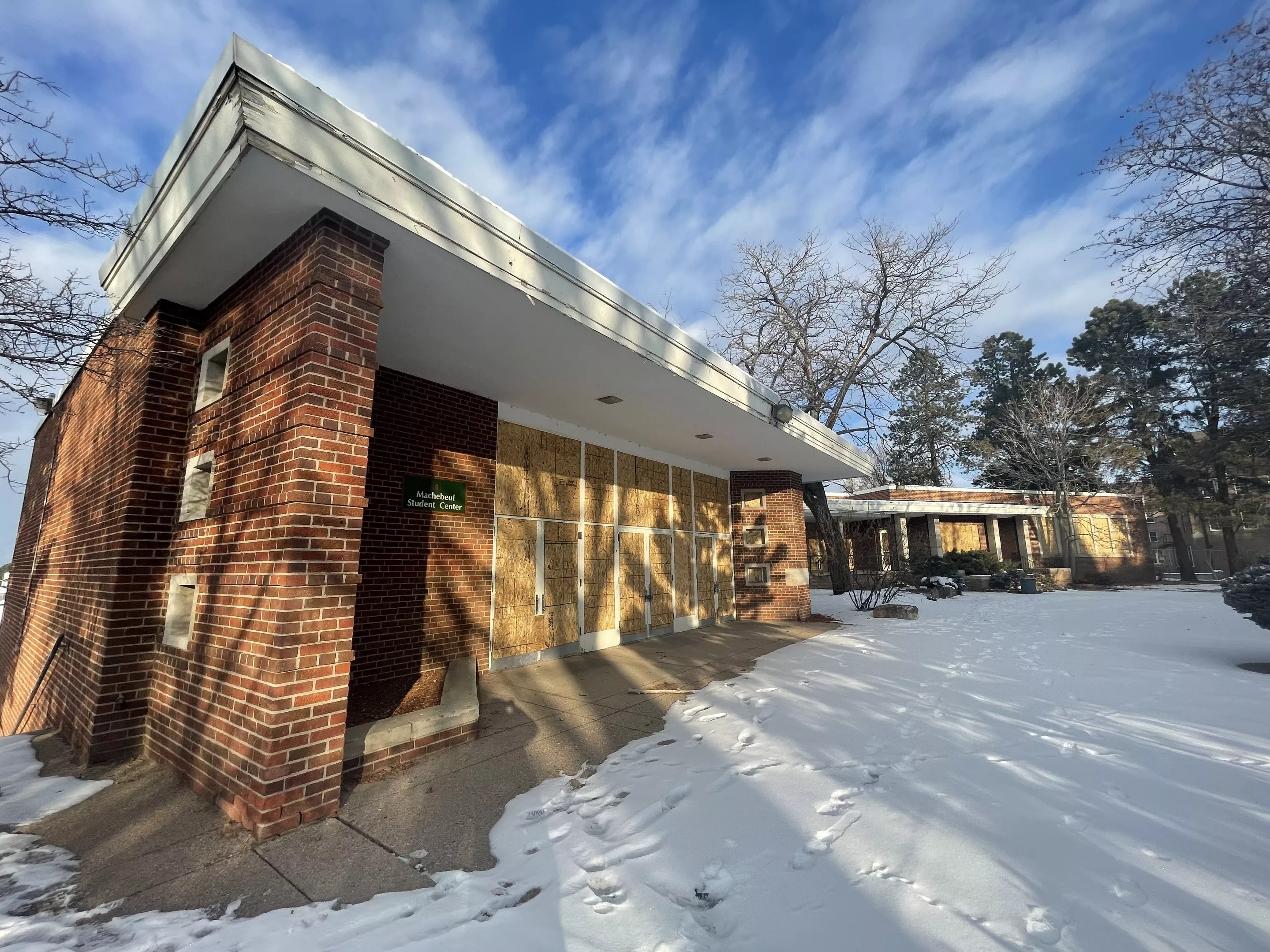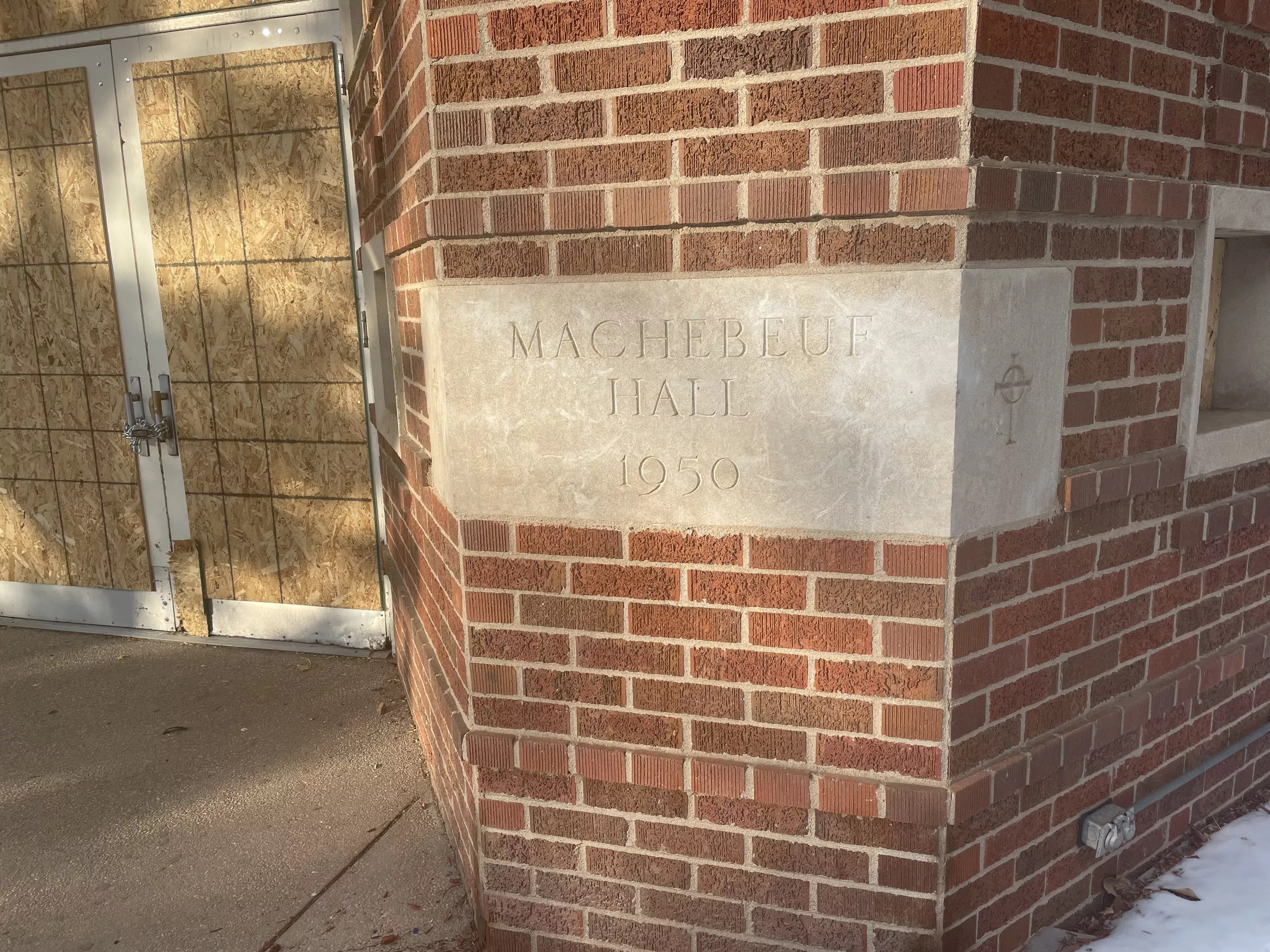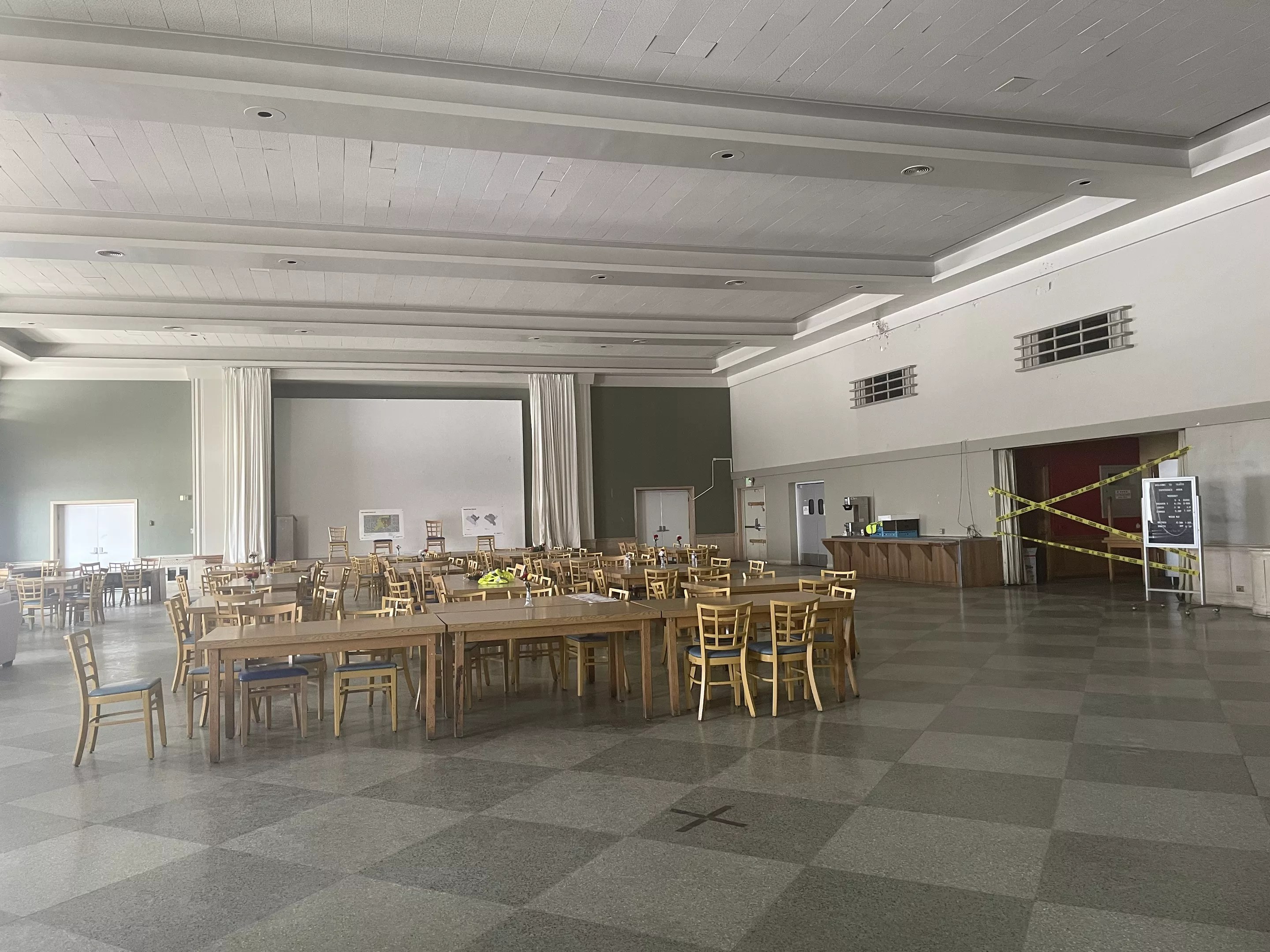
Catie Cheshire

Audio By Carbonatix
When the Colorado Symphony hosted a community concert at the May Bonfils Stanton Theater at Loretto Heights in 2018, Margaret Brugger walked up to Mark Witkiewicz and told him point-blank that she wanted to build a community center on the historic campus, which had a long, storied past starting in 1864 as a boarding school for girls, followed by incarnations as various colleges, a high school, a nursing school and a military training ground.
At the time, Brugger was a mental health professional with what was then the Mental Health Center of Denver (now WellPower), and she lived – and still does – within a mile of the campus. Witkiewicz was – and still is – principal of Westside Investment Partners, which had purchased the former Loretto Heights College campus in 2017.
“I didn’t have a nonprofit,” Brugger says. “I didn’t have one dollar to the project.”
But she knew it needed to happen, and so she banded together with others who live near the campus to discuss their vision for the area. Eventually, the group formed the nonprofit Commún, which aims to build resilience in the community by serving as a clearinghouse for ideas and actions that address things like food access, mental health support and job opportunities.
“I knew our community was going to change, and so Commún was launched, in many ways, in response to the sale of the Loretto Heights campus,” she says.
Commún began providing programs during the first week of the pandemic – operating out of a small local church – and its members quickly realized that food insecurity was one of the biggest challenges the community faced. The food-share program that came out of that need continues to offer weekly meals in five locations near the southwest Denver campus. As of December 2022, the organization was distributing 1,836 food boxes each week.
And now the community center dream is one step closer to becoming a reality, as Commún and the Urban Land Conservancy, a nonprofit organization that works to keep mission-driven organizations in spaces they may not be able to otherwise afford, have partnered to transform Machebeuf Hall, the former student union building, into a community center.
ULC, which bought the building from Westside for $3.25 million in the spring of 2022, will lease it to Commún with the option to purchase. Once Commún can buy the building, it will become part of ULC’s community land trust and be placed in a land lease, ensuring that it will always be used for community benefit.
Before ULC came into the picture, though, Brugger was struggling to secure money for the nonprofit.
“I would go to funders, and they were like okay, well, you need control of the property,” she says. “Then I would try to get control of the property – but first you need money to get control.”
Brugger shared that struggle with Tom Gougeon, board president for Commún fiscal sponsor Barton Institute for Community Action. Gougeon connected her with Aaron Miripol, ULC’s president and CEO. From there, ULC worked with Commún to find a path forward.
“We recognize that it’s very difficult for nonprofits oftentimes, especially newer nonprofits, to be able to check all the boxes that traditional bank mortgage lending requires for underwriting,” says Sarah Harman, ULC’s vice president of real estate. “We find ways to kind of put a foot in the door before the door closes on nonprofits being able to anchor their spaces and uses and preserve their locations and community.”

Machebeuf Hall opened in 1950, and it’s still standing.
Catie Cheshire
Once ULC purchases the space, nonprofits have critical site control.
Preserving the community has been a key part of the development at Loretto Heights since Westside purchased the 72-acre campus. It went through the area planning process with Denver Community Planning & Development, rezoning for less density and mixed-use development with input from the community.
Loretto Heights College was founded in 1891 and closed down in 1988. After that, it became Teikyo Loretto Heights University, which catered to international students and eventually transformed into College Heights University. Machebeuf Hall was most recently used to host classes for the Denver School of Science and Technology.
According to Witkiewicz, the community wanted the campus to remain educational, but when that wasn’t feasible for a variety of reasons – including immense deferred maintenance costs – Westside asked the community for input into what would be the next best option.
“When you really try and boil it down to what was most important to the community, it was three things,” Witkiewicz says. “One, they absolutely loved the campus from a historical standpoint. It was really important to have in that preservation, historical open space preservation. It was really important to have affordable housing. They wanted diverse housing, but they also wanted affordable housing. The last thing that was really important was the theater.”
The May Bonfils Stanton Theater is going to belong to the City of Denver, and one of the first projects to open on the campus is the Pancratia Hall Lofts, which provides 74 affordable-housing units.
Sister Lydia Peña, the last Sister of Loretto who taught at Loretto Heights College and remained in Denver, says that while she can’t speak for everyone, she thinks most of the Sisters of Loretto are happy that the campus will be used for affordable housing.
Peña, who went on to work at Regis University for nineteen years after Loretto Heights College closed, attended Loretto Heights College starting in 1951, the first year that Machebeuf Hall was open to students after being built the year prior.
“We had a Christmas banquet, and it was beautiful,” she says. “I remember wearing formals and long gloves. These were the ’50s. We were delighted to have a dining hall that was so beautiful. I was delighted. The other students were delighted, and faculty. Everybody was happy about that, and now I am delighted that Margaret Brugger is converting Machebeuf Hall into Commún, into a community center.”

Machebeuf Hall has always been a community gathering pace.
Catie Cheshire
The building has 40,000 square feet of space that Commún plans to fill with a gathering space, office rental space for nonprofits, a coffee shop for youth job training, mental health offices, a donation-based grocery store, mixed retail space and classrooms.
“There’s so many pieces, and I get so excited,” Brugger says.
Commún will move to Machebeuf Hall once the project is completed. A big goal is to give other nonprofits space, starting with Sheridan Rising Together for Equity and Kaizen Food Rescue, with which Commún works closely. Machebeuf Hall sits on the crest of the campus, between planned high-density housing close to Federal Boulevard and planned single-family homes. It has an incredible view of the Rocky Mountains and Colorado’s famous sunsets.
“We fit directly, basically, in the middle of the campus,” Brugger says. “Which is why, for us, wandering across socioeconomics, across race, across age – all of those things are so important.”
There will be child care offered on site, as well as a maker’s space for those who need a place to create goods. In addition, the building has a commercial kitchen space that it plans to rent out.
“This is where we can bring in money,” Brugger says. “To be sustainable, we need to figure out business models that make sense, and commercial kitchen space is something I’m learning recently how valuable it is.”
Commún wants to be sure that as it develops the space, the community is part of that process. The nonprofit has hosted more than 500 community-listening sessions to figure out what the area needs.
“It’s how do we have a space for us and our growing programs, and also how do we make space for others?” Brugger says. “It’s everybody in the community who wants places to walk to, to hang out and be together.”
Additionally, Commún is working to honor the history of the space, with plans to preserve many of the historic features of the building in collaboration with the Sisters of Loretto and the teachers who worked at the campus when it was Teikyo.
“We’re very excited to see Machebeuf Hall become home to such critical community-serving programs while also preserving the building’s treasured historic features,” says Jason Morrison, senior city planner with Denver CPD. “In 2019, the southwest Denver community told us how important it was to create a place where the community can gather, and this is a great opportunity to bring that vision to life.”
Brugger says the plan is to open in two and a half years. Fundraising and permitting is a bit unpredictable, she says, but she believes the project will get done. The building’s electrical system needs to be reworked, as does the plumbing.
Peña is confident the project will be able to move forward. She’s helped with fundraising for Commún in the past. In her last few years at Regis, she spoke to members of the Loretto Heights College community who were upset it was gone.
“It was not an easy time, to lose our college,” she says. “Some of us can mourn and move on, and others have a hard time, and there were those that had a really hard time. … I called and listened and learned a lot about human beings.”
In the course of those conversations, she connected with Margaret Rueckert-Hartman, who had attended the nursing program at Loretto Heights College that was transferred to Regis. After speaking with Peña, Rueckert-Hartman donated money to Regis for its library, and eventually the school’s Rueckert-Hartman College for Health Professions was named in her honor.
When Peña heard about Brugger’s idea, she reached out to Rueckert-Hartman again, who donated $500,000 to help start Commún.
For now, the campus will continue to develop, with plans for a cultural center similar to the McNichols Building in Civic Center Park, single-family homes, a senior housing project and more apartment buildings, according to Witkiewicz.
“Those of us who had the privilege of going to college at Loretto Heights know that we got an excellent education from the sisters who taught there, and for that reason, some people were shattered and upset when the college closed,” Peña says. “Depending on our personality, our thinking, some of us were thankful for what had happened there, and are very thankful for what is happening there now.”